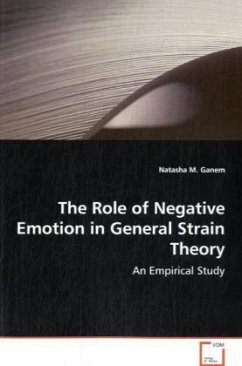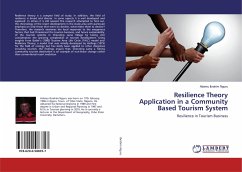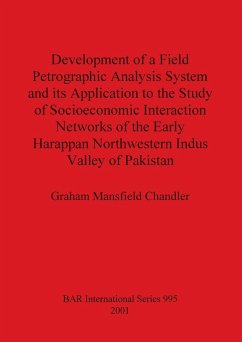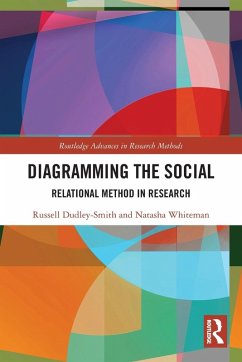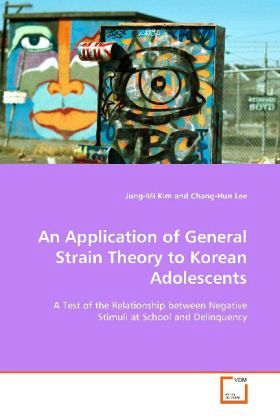
An Application of General Strain Theory to Korean Adolescents
A Test of the Relationship between Negative Stimuli at School and Delinquency
Versandkostenfrei!
Versandfertig in 6-10 Tagen
32,99 €
inkl. MwSt.

PAYBACK Punkte
16 °P sammeln!
Juvenile delinquency has been a constant public concern in most of the countries. Rising amount of crime and violence among youths has called for academic attention, and their findings have broadened our understanding of delinquency. Although much effort has been invested in keeping youths safe in South Korea, there is the lack of empirical knowledge on delinquency. This study is designed to test general strain theory in the Korea setting, and examines the relationship between students negative experiences at school and delinquency. This study views the higher-education oriented school culture...
Juvenile delinquency has been a constant public
concern in most of the countries. Rising amount of
crime and violence among youths has called for
academic attention, and their findings have
broadened our understanding of delinquency. Although
much effort has been invested in keeping youths safe
in South Korea, there is the lack of empirical
knowledge on delinquency. This study is designed to
test general strain theory in the Korea setting, and
examines the relationship between students negative
experiences at school and delinquency. This study
views the higher-education oriented school culture
as a major source of strain for youth. Hypotheses
are tested with data collected by the Korean
National Institute of Criminology from a sample of
1,919 middle/high school students within 20 schools.
The results suggest that general strain theory holds
true in the Korean school setting. The results also
show that grades, bullying, internal pressure, and
parents income are positively related to
delinquency. The results from this study should be
useful to school authorities as well as anyone who
may be interested in testing general strain theory
for delinquency.
concern in most of the countries. Rising amount of
crime and violence among youths has called for
academic attention, and their findings have
broadened our understanding of delinquency. Although
much effort has been invested in keeping youths safe
in South Korea, there is the lack of empirical
knowledge on delinquency. This study is designed to
test general strain theory in the Korea setting, and
examines the relationship between students negative
experiences at school and delinquency. This study
views the higher-education oriented school culture
as a major source of strain for youth. Hypotheses
are tested with data collected by the Korean
National Institute of Criminology from a sample of
1,919 middle/high school students within 20 schools.
The results suggest that general strain theory holds
true in the Korean school setting. The results also
show that grades, bullying, internal pressure, and
parents income are positively related to
delinquency. The results from this study should be
useful to school authorities as well as anyone who
may be interested in testing general strain theory
for delinquency.



